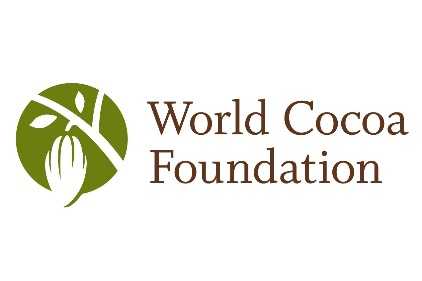MILAN – Richard Scobey, President of the World Cocoa Foundation, has issued the following statement on the report by NORC at the University of Chicago, entitled: “Assessing Progress in Reducing Child Labor in Cocoa Production in Cocoa Growing Areas of Côte d’Ivoire and Ghana”. The report is being issued on Monday, October 19.
“As this report shows, there are today still too many children in cocoa farming doing work for which they are too young, or work that endangers them — and child labor has no place in the cocoa supply chain. Child labor remains a persistent challenge in Côte d’Ivoire and Ghana, despite major efforts by the governments, cocoa and chocolate companies, cocoa-growing communities, and development partners. NORC confirms that targets to reduce child labor were set without fully understanding the complexity and scale of a challenge heavily associated with poverty in rural Africa and did not anticipate the significant increase in cocoa production over the past decade.
It is important to note this report is not about the abhorrent practices of forced child labor or forced adult labor in Côte d’Ivoire and Ghana, which other studies show is extremely rare in the cocoa sector.
Government and company programs to reduce child labor are making a difference. NORC confirms that the more than 60 percent increase in total cocoa production in Côte d’Ivoire and Ghana over the past 10 years did not bring a similar surge in child labor. Government and company programs led to a reduction in child labor. A separate study by NORC commissioned by WCF demonstrates that hazardous child labor has been reduced by one-third in communities where company programs are in place – a finding that is consistent with results from work by the International Cocoa Initiative (ICI), which shows that child labor can be reduced by one-half among those child laborers identified by company due diligence measures.
In research commissioned by WCF, NORC recommended that a package of company measures addressing child labor be expanded to more communities: “… efforts to combat child labor and hazardous child labor in respective supply chains should be increased given current successes,” said the study, entitled Assessment of Effectiveness of Cocoa Industry Interventions in Reducing Child Labor in Cocoa Growing Areas of Côte d’Ivoire and Ghana.
Companies, the governments of Côte d’Ivoire and Ghana, civil society organizations and all stakeholders involved in the fight against child labor, now know more about what works – and are scaling up these efforts for impact.
To protect children, leading companies will increase the coverage of child labor monitoring and remediation systems to 100% by 2025, from about 20% in 2019, in their direct supply chains in Côte d’Ivoire and Ghana.
To ensure access to quality education, the government of Côte d’Ivoire intends to launch a $120 million pooled funding facility for primary education in partnership with the Jacobs Foundation that aims to reach 5 million children, with $25 million expected from industry.
To help raise farmers out of poverty, companies have supported the new Living Income Differential pricing policy of Côte d’Ivoire and Ghana in 2020/21 that will provide an estimated $1.2 billion in additional revenues for cocoa farmers on top of official market prices.
To boost household incomes and yields, leading companies will reach 100% coverage by 2025 of all farmers in their direct supply chains in Côte d’Ivoire and Ghana with training, coaching, or farm development plans on good agricultural practices.
Companies are already ramping up their investments to fight child labor.
This supports the implementation of the strong national action plans recently approved by Côte d’Ivoire and Ghana to eliminate child labor.
In 2019, companies invested $65 million in a wide range of social development activities to address child labor, covering child protection, education, community development, income diversification for vulnerable households, and other child survival activities – about six-times higher than what was spent a year in 2001-18.
Companies are working on a more transformative approach to make sure today’s generation of children are protected from labor on cocoa farms. Companies recognize that child labor is a human rights issue and are determined to take additional measures to protect children in their supply chains, guided by the UN Guiding Principles on Business and Human Rights.
Success will require more ambitious partnerships and collaboration. Companies alone cannot solve the problem – we are committed to launching a new public-private partnership with the producing and consuming governments, UN agencies, farmer groups, and civil society organizations to tackle the root causes of child labor, which is heavily associated with poverty.
Only by taking this more direct and comprehensive approach can we ensure today’s generation of children reach their full potential and have a chance at the bright future they deserve.
Background:
The World Cocoa Foundation was a signatory to the landmark Harkin-Engel Protocol in 2001. It has about 100 member companies that represent more than 80% of the global cocoa supply chain. WCF and its members work to achieve a thriving and sustainable cocoa sector, where farmers prosper, communities are empowered, and the planet is healthy.


















